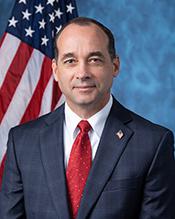0
0
0
FAIR Act
12/21/2024, 9:05 AM
Summary of Bill HR 751
The FAIR Act, also known as Bill 118 hr 751, is a piece of legislation currently being considered by the US Congress. The purpose of this bill is to address issues related to forced arbitration agreements in employment and consumer contracts.
Forced arbitration agreements are contracts that require individuals to resolve disputes through arbitration rather than through the court system. Critics argue that these agreements often favor corporations over individuals, as arbitration can be a less transparent and fair process.
The FAIR Act seeks to address this issue by prohibiting forced arbitration agreements in employment, consumer, antitrust, and civil rights disputes. This means that individuals would have the option to pursue legal action through the court system rather than being forced into arbitration. Supporters of the bill argue that it would help to level the playing field between individuals and corporations, ensuring that individuals have access to a fair and transparent legal process. However, opponents of the bill argue that it could lead to an increase in frivolous lawsuits and clog up the court system. Overall, the FAIR Act is a significant piece of legislation that aims to protect the rights of individuals in disputes with corporations. It is currently being debated in Congress, and its outcome will have important implications for the future of arbitration agreements in the United States.
Forced arbitration agreements are contracts that require individuals to resolve disputes through arbitration rather than through the court system. Critics argue that these agreements often favor corporations over individuals, as arbitration can be a less transparent and fair process.
The FAIR Act seeks to address this issue by prohibiting forced arbitration agreements in employment, consumer, antitrust, and civil rights disputes. This means that individuals would have the option to pursue legal action through the court system rather than being forced into arbitration. Supporters of the bill argue that it would help to level the playing field between individuals and corporations, ensuring that individuals have access to a fair and transparent legal process. However, opponents of the bill argue that it could lead to an increase in frivolous lawsuits and clog up the court system. Overall, the FAIR Act is a significant piece of legislation that aims to protect the rights of individuals in disputes with corporations. It is currently being debated in Congress, and its outcome will have important implications for the future of arbitration agreements in the United States.
Congressional Summary of HR 751
Fair Access In Residency Act or the FAIR Act
This bill requires hospitals to certify that they accept residency applications from both osteopathic and allopathic medical schools and to disclose the number of applicants and acceptances from each type of program in order to receive graduate medical education payments under Medicare.
Read the Full Bill
Current Status of Bill HR 751
Bill HR 751 is currently in the status of Bill Introduced since February 2, 2023. Bill HR 751 was introduced during Congress 118 and was introduced to the House on February 2, 2023. Bill HR 751's most recent activity was Referred to the Subcommittee on Health. as of December 17, 2024
Bipartisan Support of Bill HR 751
Total Number of Sponsors
2Democrat Sponsors
0Republican Sponsors
2Unaffiliated Sponsors
0Total Number of Cosponsors
27Democrat Cosponsors
9Republican Cosponsors
18Unaffiliated Cosponsors
0Policy Area and Potential Impact of Bill HR 751
Primary Policy Focus
HealthPotential Impact Areas
- Employee hiring
- Government information and archives
- Health personnel
- Higher education
- Hospital care
- Medical education
- Medicare
Alternate Title(s) of Bill HR 751
FAIR Act
FAIR Act
Fair Access In Residency Act
To amend title XVIII of the Social Security Act to require as a condition of satisfying the definition of an approved medical residency training program for purposes of payments under Medicare for costs related to graduate medical education for hospitals operating such a program to submit information to encourage more equitable treatment of osteopathic and allopathic candidates in the residency application and review process, and for other purposes.
Comments
Sponsors and Cosponsors of HR 751
Latest Bills
Public Lands Military Readiness Act of 2025
Bill HR 5131December 11, 2025
Dalles Watershed Development Act
Bill HR 655December 11, 2025
STARS Act
Bill HR 4285December 11, 2025
To authorize, ratify, and confirm the Agreement of Settlement and Compromise to Resolve the Akwesasne Mohawk Land Claim in the State of New York, and for other purposes.
Bill HR 2916December 11, 2025
To designate the facility of the United States Postal Service located at 86 Main Street in Haverstraw, New York, as the "Paul Piperato Post Office Building".
Bill HR 1009December 11, 2025
Make SWAPs Efficient Act of 2025
Bill HR 1676December 11, 2025
Miccosukee Reserved Area Amendments Act
Bill HR 504December 11, 2025
To designate the facility of the United States Postal Service located at 298 Route 292 in Holmes, New York, as the "Sheriff Adrian 'Butch' Anderson Post Office Building".
Bill HR 1008December 11, 2025
Lower Elwha Klallam Tribe Project Lands Restoration Act
Bill HR 2388December 11, 2025
Fallen Servicemembers Religious Heritage Restoration Act
Bill HR 2701December 11, 2025





